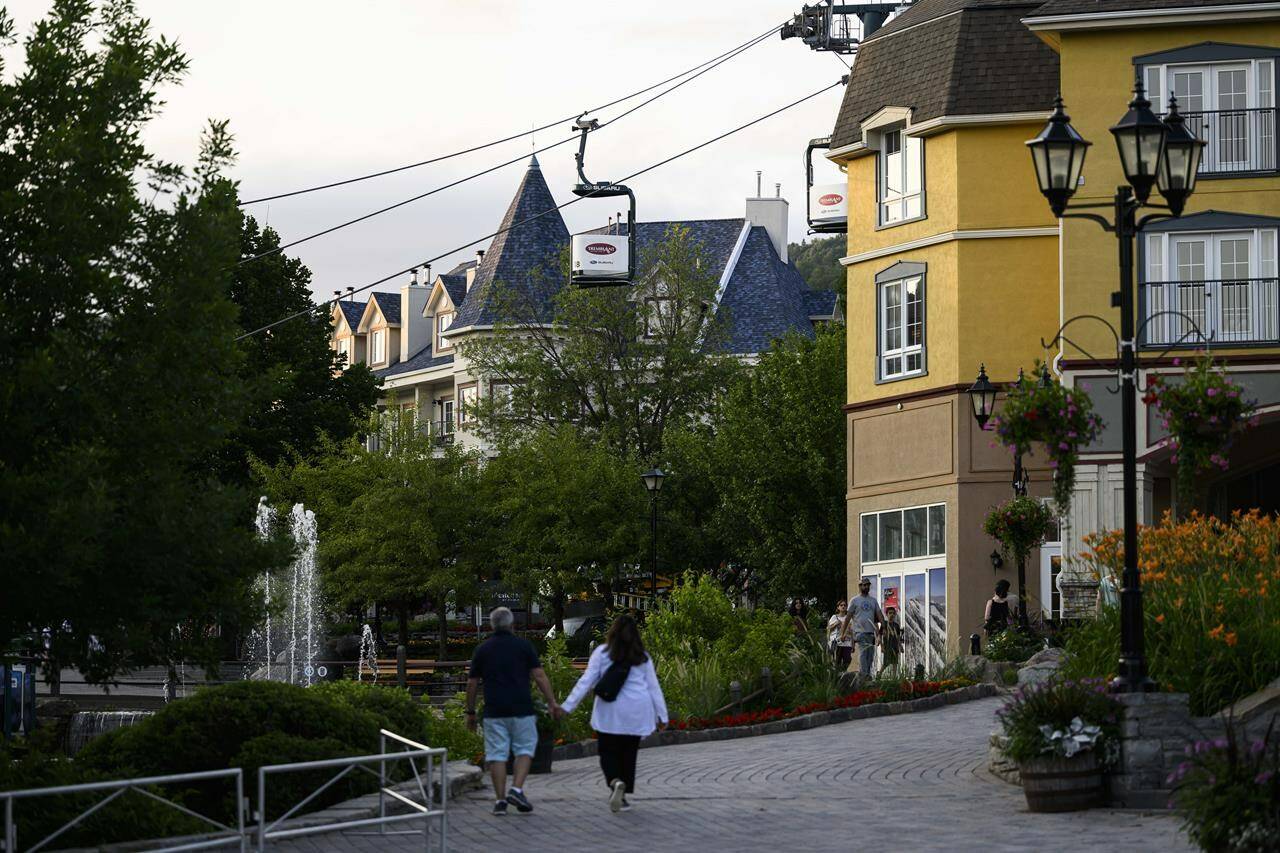A deadly collision between a gondola and a drill rig at Quebec’s Mont Tremblant Ski Resort in July occurred, in part, because of incomplete procedures governing how construction equipment was to be moved on the property, a labour inspector has concluded.
A Canadian soldier, Sgt. Sheldon Johnson, 50, of Kingston, Ont., died in the collision, and a woman in her 50s was severely injured after they were thrown from a sightseeing gondola that was struck by the mast of a drill rig on July 16. About one week later, a Quebec labour board inspector banned the movement of construction equipment on the site because the risk was too high that another collision would occur.
The information is included in intervention reports obtained by The Canadian Press through an access to information request with Quebec’s labour board — Commission des normes, de l’équité, de la santé et de la sécurité du travail.
“Information obtained during the investigation shows that the conditions that led to the crash during the movement of the drill remain present on the site, as elements are missing from the written access procedure as well as in the communication to the parties,” inspector Jean-Philippe Gaudreault wrote in a report on July 28 about his inspection four days prior.
In a preliminary report completed on site on July 24, Gaudreault wrote, “there is no complete written procedure for moving construction machinery on the Mont Tremblant resort site.” And the incomplete procedure that was in place, he said, wasn’t known by everyone working at the well-known ski hill.
Gaudreault ordered on July 24 that before construction workers could resume moving machinery between work sites, operator Station Mont Tremblant must establish clear procedures and ensure that they are communicated with contractors. He also instructed the resort operator to “ensure that all accesses to the mountain are controlled and that the barriers cannot be bypassed by construction machinery.”
The drilling rig involved in the collision was being used in a project to replace a snow-making system on one of the ski trails.
Station Mont Tremblant did not respond to a request for comment Thursday.
An intervention report from July 28 says the resort operator submitted a mountain-access policy to the labour board the day prior, requiring that all requests to move construction machinery be submitted 48 hours in advance. As well, the policy says, project managers are to select the route that is to be taken and a Mont Tremblant representative must accompany the machinery.
However, Gaudreault says the plan was still missing elements: there was no requirement that the machinery be accompanied by an “escort/signaller,” and it was still not clearly prohibited to move equipment under an active ski lift.
The board lifted the ban on Aug. 4, after it received an updated policy that included a clear procedure for moving oversized vehicles and other construction machinery in the path of a lift, says a report from that day. Inspector Claude Langlois wrote that Station Mont Tremblant had taken steps to ensure workers are aware of the new policy.
The board says that other measures of the policy prohibit anyone from moving machinery under a ski lift on weekends and holidays without special permission. The deadly July collision occurred on a Sunday.
Inspection reports show that the windshield of the drilling rig, owned by a company called Forage M2P, was cracked at the time of the collision, possibly limiting the operator’s vision. As well, the rig’s horn was broken, preventing the driver from alerting bystanders. The board ordered both of those issued to be corrected.
Forage M2P did not respond to a request for comment Thursday.
READ ALSO: Ontario man dead, woman critical after gondola crash in Quebec

